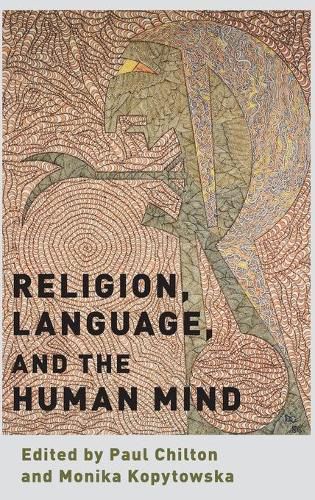Readings Newsletter
Become a Readings Member to make your shopping experience even easier.
Sign in or sign up for free!
You’re not far away from qualifying for FREE standard shipping within Australia
You’ve qualified for FREE standard shipping within Australia
The cart is loading…






What is religion? How does it work? Many natural abilities of the human mind are involved, and crucial among them is the ability to use language. This volume brings together research from linguistics, cognitive science and neuroscience, as well as from religious studies, to understand the phenomena of religion as a distinctly human enterprise. The book is divided into three parts, each part preceded by a full introductory chapter by the editors that discusses modern scientific approaches to religion and the application of modern linguistics, particularly cognitive linguistics and pragmatics. Part I surveys the development of modern studies of religious language and the diverse disciplinary strands that have emerged. Beginning with descriptive approaches to religious language and the problem of describing religious concepts across languages, chapters introduce the turn to cognition in linguistics and also in theology, and explore the brain’s contrasting capacities, in particular its capacity for language and metaphor. Part II continues the discussion of metaphor - the natural ability by which humans draw on basic knowledge of the world in order to explore abstractions and intangibles. Specialists in particular religions apply conceptual metaphor theory in various ways, covering several major religious traditions-Buddhism, Christianity, Hinduism, Islam and Judaism. Part III seeks to open up new horizons for cognitive-linguistic research on religion, looking beyond written texts to the ways in which language is integrated with other modalities, including ritual, religious art, and religious electronic media. Chapters in Part III introduce readers to a range of technical instruments that have been developed within cognitive linguistics and discourse analysis in recent years. What unfolds ultimately is the idea that the embodied cognition of humans is the basis not only of their languages, but also of their religions.
$9.00 standard shipping within Australia
FREE standard shipping within Australia for orders over $100.00
Express & International shipping calculated at checkout
What is religion? How does it work? Many natural abilities of the human mind are involved, and crucial among them is the ability to use language. This volume brings together research from linguistics, cognitive science and neuroscience, as well as from religious studies, to understand the phenomena of religion as a distinctly human enterprise. The book is divided into three parts, each part preceded by a full introductory chapter by the editors that discusses modern scientific approaches to religion and the application of modern linguistics, particularly cognitive linguistics and pragmatics. Part I surveys the development of modern studies of religious language and the diverse disciplinary strands that have emerged. Beginning with descriptive approaches to religious language and the problem of describing religious concepts across languages, chapters introduce the turn to cognition in linguistics and also in theology, and explore the brain’s contrasting capacities, in particular its capacity for language and metaphor. Part II continues the discussion of metaphor - the natural ability by which humans draw on basic knowledge of the world in order to explore abstractions and intangibles. Specialists in particular religions apply conceptual metaphor theory in various ways, covering several major religious traditions-Buddhism, Christianity, Hinduism, Islam and Judaism. Part III seeks to open up new horizons for cognitive-linguistic research on religion, looking beyond written texts to the ways in which language is integrated with other modalities, including ritual, religious art, and religious electronic media. Chapters in Part III introduce readers to a range of technical instruments that have been developed within cognitive linguistics and discourse analysis in recent years. What unfolds ultimately is the idea that the embodied cognition of humans is the basis not only of their languages, but also of their religions.